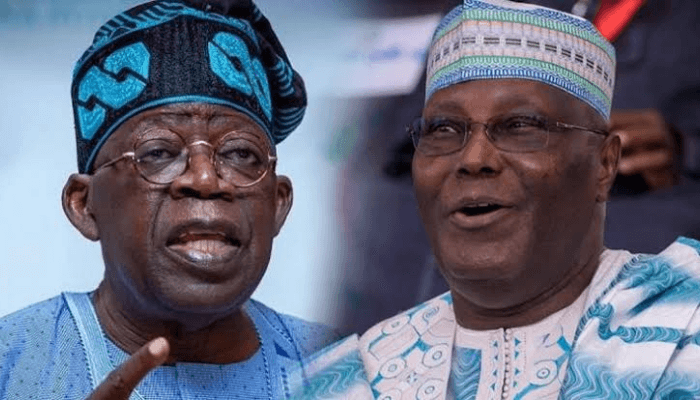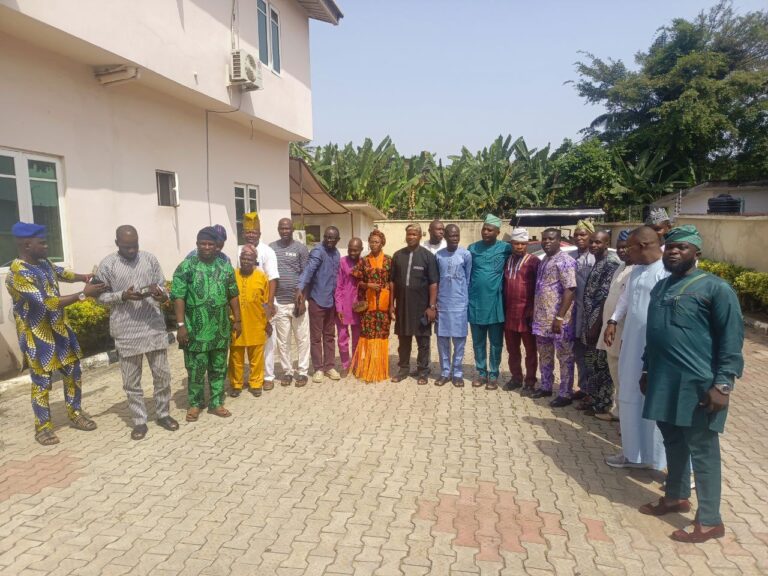
Former Vice President and presidential candidate of the Peoples Democratic Party (PDP) in the 2023 general elections, Atiku Abubakar, has come down hard on President Bola Ahmed Tinubu and his administration, over what he describes as the government’s “failure to fulfill its promises” to Nigerian workers and its “increasing authoritarian tendencies.”
In a strongly worded statement released on Sunday, Atiku decried the non-payment of four months’ wage award arrears to federal civil servants, and condemned the recent arrest and continued detention of labour activist Andrew Emelieze, who had reportedly planned a peaceful protest to demand the payment.
Atiku, who served as Vice President from 1999 to 2007, did not mince words in his critique, warning that the Tinubu administration’s failure to deliver on its promises and its alleged repression of dissenting voices marked a disturbing shift away from democratic norms.
“An Economic Avalanche”
Atiku began by recalling President Tinubu’s controversial May 29, 2023 inauguration-day announcement, in which he declared an end to fuel subsidy, a decision that sent immediate shockwaves through the economy, leading to skyrocketing fuel prices and general inflation across sectors.
“When President Bola Ahmed Tinubu hastily and thoughtlessly removed fuel subsidy on the day of his inauguration, he triggered an economic avalanche that has since buried the average Nigerian under the weight of inflation, hunger, and despair,” Atiku stated.
According to the former Vice President, the removal of the subsidy was not matched with any meaningful or timely relief measures, thereby exacerbating the economic struggles faced by ordinary Nigerians.
In an attempt to soften the impact of subsidy removal, the Tinubu administration had promised to pay ₦35,000 monthly wage awards to federal civil servants as a temporary measure while a new national minimum wage was being negotiated. Atiku noted that although the government took nearly 10 months to reach a consensus on the minimum wage figure, it failed to fulfill its wage award commitment.
He explained that while ten months’ worth of payments were expected, only six months have so far been disbursed leaving an outstanding balance of ₦140,000 per worker.
“By implication, the Federal Government owes 10 months of wage award arrears to federal workers. Yet, only six months have been paid, and that too after a series of unfulfilled assurances and avoidable delays,” Atiku said.
He criticized what he described as “callous indifference and utter disdain” by the federal government towards workers’ welfare, while praising some state governments that have taken worker compensation more seriously.
Suppression of Protest and Free Speech
Atiku also condemned the arrest and continued detention of Andrew Emelieze, a labour rights activist who reportedly attempted to organize a peaceful demonstration to demand the payment of the outstanding wage awards.
He described the activist’s arrest as a dangerous precedent and “a slap in the face of every Nigerian worker,” suggesting that the move signaled a broader trend of intolerance towards dissent under the current administration.
“Instead of engaging in dialogue or fulfilling its promises, the government has now resorted to tyranny and suppression of free speech,” Atiku said. “His only ‘crime’ was speaking up for workers abandoned by the state.”
Atiku demanded the immediate and unconditional release of Emelieze, adding that his detention was not only illegal but also morally unacceptable in a democratic society.
In closing, Atiku issued a rallying call to the Nigerian government to shift focus from repression to responsiveness, urging the Tinubu administration to urgently address the economic hardships facing citizens and uphold the democratic rights of freedom of expression and peaceful protest.
“The economic hardship is real, the hunger is biting, and the government has a duty to act, not repress,” Atiku said, emphasizing that Nigerian workers “will not be silenced.”
His statement comes at a time of growing tension between the federal government and labour unions, with workers across various sectors increasingly voicing frustration over rising living costs, unpaid entitlements, and stalled negotiations on the national minimum wage.
Political observers suggest Atiku’s intervention is not only a show of solidarity with Nigeria’s working class but also a strategic positioning ahead of future political developments.
As the nation continues to grapple with economic challenges and public dissatisfaction, pressure is mounting on the Tinubu administration to deliver on promises made during and after the 2023 election campaign.





